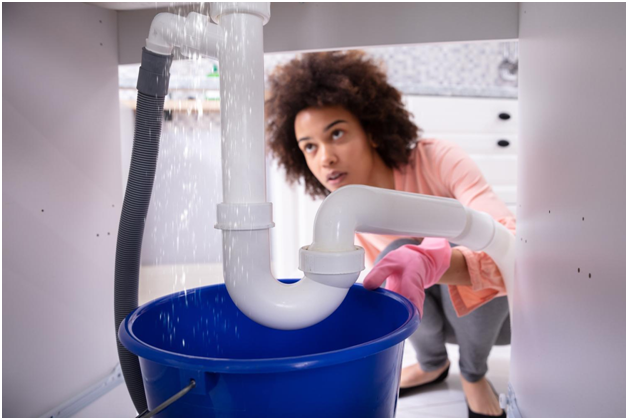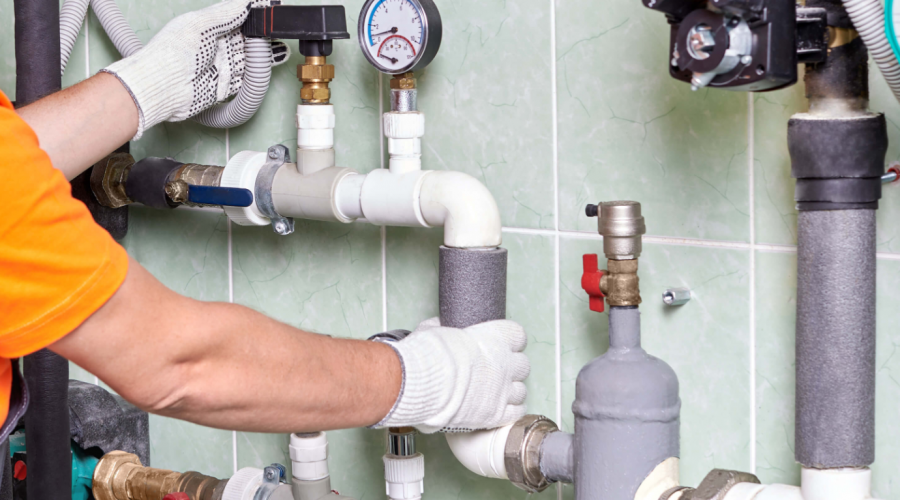Almost everyone seems to have their own idea on the subject of What to Do While Waiting for an Emergency Plumber.

Plumbing emergencies can strike at any time, causing stress and anxiety and possible damages to your home. Whether it's a ruptured pipeline, a blocked drain, or a leaky faucet, recognizing exactly how to manage the situation till a specialist plumbing professional shows up can save you from more issues. This short article provides essential emergency situation pipes suggestions to help you mitigate damages and gain back control during a plumbing situation.
Shut off the Supply Of Water
The first step in any kind of plumbing emergency situation is to shut down the supply of water. For localized concerns, such as a leaking tap or bathroom, turn off the shutoff near the component. In the case of a significant leak or burst pipeline, find your home's main water shut-off valve and turn it off immediately. Recognizing the area of these valves beforehand can save beneficial time throughout an emergency.
Address Small Leakages with Momentary Fixes
Tiny leakages can rapidly become substantial troubles if left unattended. Make use of these short-lived repairs until specialist assistance arrives:
While these repairs aren't permanent, they can assist decrease water loss and damage.
Unclog Drains Pipes Safely
A stopped up drain can be a discouraging and unpleasant issue. Below's how to tackle it:
If these methods do not function, avoid making use of excessive force, as it might worsen the obstruction.
Take Care Of Overflowing Toilets
An overflowing bathroom can create instant mayhem. Right here's what you need to do:
Shut Off Your Water Heater
In certain emergencies, such as a burst pipe, it's a good idea to turn off your water heater. This avoids overheating or damage to the system when water stops flowing. Turn off the power supply to the water heater (electric or gas) and let it cool down to stay clear of possible threats.
Momentarily Quit a Ruptured Pipe
A burst pipe can result in considerable water damages in mins. To alleviate the concern:
Call an expert plumbing right away to deal with the problem permanently.
Handle Frozen Pipes Meticulously
In cooler environments, icy pipes are a common emergency. If you suspect an icy pipeline:
Stop Further Damage
Taking fast activity to reduce damage can conserve you time and money in the future. Right here's exactly how:
. Have an Emergency Situation Plumbing Kit
Prepare a standard plumbing emergency situation set to deal with small problems effectively. Your kit needs to include:
Having these devices available can make a significant distinction in your ability to handle emergency situations.
Know When to Call a Professional.
While quick fixes can aid temporarily, particular plumbing concerns require prompt professional focus. Call a plumbing if:.
Without delay getting in touch with a specialist makes certain the concern is fixed properly and prevents additional issues.
Verdict.
Plumbing emergencies can be frustrating, yet with the best expertise and devices, you can manage the situation successfully till help gets here. By turning off the supply of water, resolving tiny leaks, and utilizing short-term repairs, you can decrease damages and keep your home safe. Keep in mind, these suggestions are momentary remedies; always speak with an accredited plumbing professional to handle the source of the trouble. Prep work and fast thinking are your best allies in any plumbing emergency.
8 Helpful Tips for Managing Plumbing Emergencies at Home
If your plumbing system hasn’t failed once, wait for it because almost everyone has a story to tell. Sometimes, it could be simple emergencies such as a leaking pipe, a blocked cistern, or even a big burst pipe. In situations like this, you need to have some handy tips to save you some money and from possible damages.
Take care of minor issues early.
Sometimes, you could have avoided an emergency by taking proactive measures while it was still early. Some major plumbing emergencies can be a result of an ignored minor issue. We recommend that you have items like plumbing tapes and other related items. A plumbing tape can allow you to manage minor leaks before the plumber arrives.
Cut off the water supply.
This tip is essential in almost any type of leakage problem. For problems like minor leakages in the toilet or kitchen, turn off the supply that takes water to the affected pipes. If the leakage is a major pipe, you must shut off the supply valve to the entire building. This will help you avoid flooding your home and neighbors if you share a flat.
Know your plumbing system
Folks typically move into a new apartment without understanding the water supply around the building. This can prove disastrous if a water emergency arises and the plumber is far away. The previous tip will prove useless if you don’t practice this one. More importantly, know where your water shut-off valve is located – you’ll need that knowledge to prevent potential home floods.
Have some common handy tools
There are lots of plumbing emergencies that you can handle without hiring a plumber. That’s why you must keep some tools available always. Some tools that you can use to fix simple plumbing emergencies easily include plumbing tapes, screwdrivers, thread seal tapes, plungers, pliers, tape measures, and rubber gloves.
Insulate your pipes from cold
You’ll save yourself from many plumbing expenses if you protect your water pipes from the cold. This is because of the harmful effects that cold weather can have on your pipes. During winter, your pipes can burst from being overly expected to freezing temperatures. So, make sure insulators are there to keep the pipes working correctly.
Avoid practices that will clog your toilet.
Many people indulge in practices that can damage the plumbing system of the entire building. One of these is when they use their toilet to dispose-off garbage. They flush all kinds of things, such as paper towels, bandages, hairs, female sanitary products, etc., down the toilet. This will block your toilet in the long run, incurring unnecessary expenditures. Dump such waste in the trash instead.
Check your dials regularly.
Sometimes, there could be leakages in your home without noticing them in time. So, constantly monitor your water meter dial. If the dial is reading when there is nobody using water, this is an indicator that there is leaking. Check for leaks immediately. Call a plumber as soon as possible if you can’t find any.
https://www.constructionplacements.com/8-helpful-tips-for-managing-plumbing-emergencies-at-home/

Hopefully you enjoyed our post on . Thanks for taking the time to read our short article. Are you aware of another person who is curious about the subject? Why not share it. We thank you for your readership.
Click Here